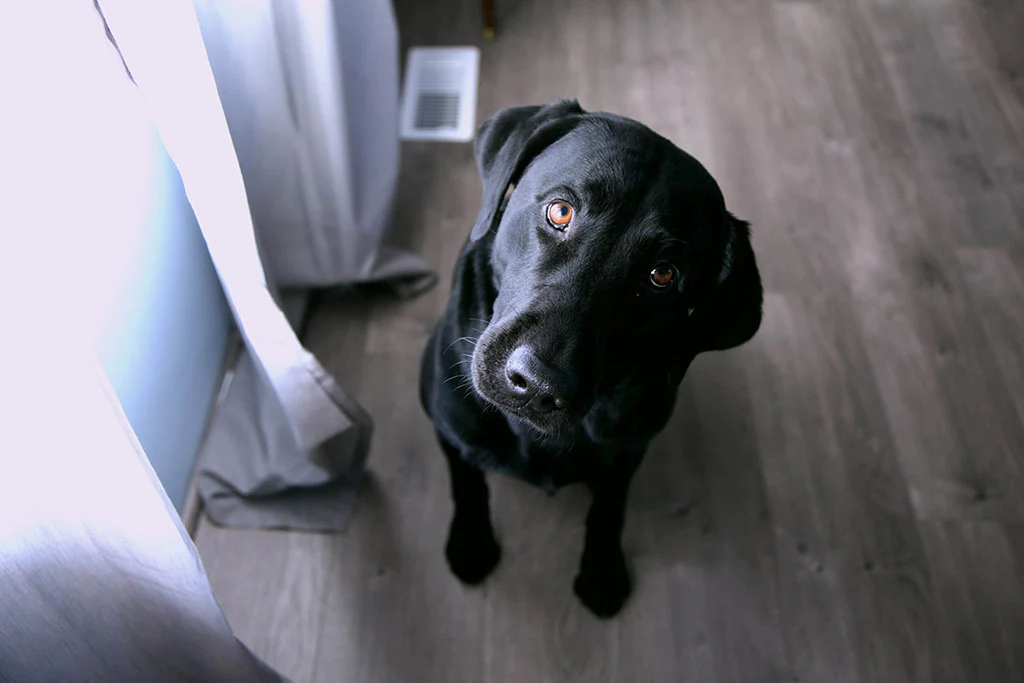As pet owners, we are always concerned about the health and well-being of our furry companions. It can be quite distressing to see our dogs experiencing any kind of discomfort or unusual behavior. One common issue that Why Does My Dog Keep Heaving, which can be a cause for concern.
Heaving refers to the act of a dog making repetitive, forceful movements as if trying to vomit or bring something up. It can be accompanied by retching, gagging, or even the actual expulsion of vomit. While occasional heaving may not be a cause for immediate alarm, persistent or frequent episodes should not be ignored, as they may indicate an underlying health issue.
 Understanding Why Does My Dog Keep Heaving
Understanding Why Does My Dog Keep Heaving
Heaving, or the repetitive forceful movements as if trying to vomit, can be a concerning behavior in dogs. To better understand why your dog may be experiencing this, let’s explore some common reasons of Why Does My Dog Keep Heaving and underlying causes:
1. Dietary Indiscretions
One of the most common reasons of Why Does My Dog Keep Heaving is dietary indiscretions. Dogs are notorious for their curious nature and tendency to eat things they shouldn’t. Consuming spoiled or inappropriate food, foreign objects, or even excessive amounts of grass can lead to digestive disturbances and subsequent heaving.
2. Gastrointestinal Upset
Gastrointestinal upset, such as gastritis or gastroenteritis, can also trigger heaving in dogs. These conditions can be caused by various factors, including bacterial or viral infections, dietary changes, food allergies, or even certain medications. Dogs with gastrointestinal issues may exhibit other symptoms like diarrhea, loss of appetite, or abdominal discomfort.
3. Internal Parasites
Internal parasites, such as worms, can wreak havoc on a dog’s digestive system. When infested with worms, dogs may experience heaving as their bodies attempt to expel the parasites. Regular deworming and preventive measures can help reduce the likelihood of internal parasites and associated heaving episodes.
4. Respiratory Problems
In some cases, heaving can be a result of respiratory problems. Dogs with conditions like kennel cough, pneumonia, or other respiratory infections may exhibit heaving as a response to irritation in their airways. If your dog’s heaving is accompanied by coughing, wheezing, or difficulty breathing, it is essential to consult a veterinarian for a proper diagnosis and treatment.
5. Gastric Dilatation-Volvulus (GDV)
Gastric Dilatation-Volvulus, commonly known as bloat, is a severe and potentially life-threatening condition that can cause heaving in dogs. It occurs when the stomach fills with gas or fluid, leading to distention and twisting. Bloat is more common in large, deep-chested breeds and requires immediate veterinary attention.
6. Other Underlying Health Issues
There are various other reasons of Why Does My Dog Keep Heaving that can contribute to heaving in dogs. These may include pancreatitis, kidney disease, liver problems, or even certain types of cancer. If your dog’s heaving is persistent, frequent, or accompanied by other concerning symptoms, it is crucial to consult with a veterinarian for a comprehensive evaluation.
Practical Recommendations to Address Dog Heaving
When it comes to addressing your dog’s heaving, there are several practical recommendations you can follow. These recommendations aim to alleviate minor cases and promote your dog’s overall well-being. However, it is important to note that if the heaving persists or is accompanied by concerning symptoms, consulting a veterinarian is crucial for a proper diagnosis and treatment. Here are some actionable recommendations for Why Does My Dog Keep Heaving:
1. Evaluate and Modify Your Dog’s Diet
Take a closer look at your dog’s diet and ensure that it is balanced and appropriate for their age, breed, and specific needs. Consider switching to high-quality, easily digestible dog food that does not contain any potential allergens or artificial additives. Avoid feeding your dog table scraps or foods that are known to cause digestive upset.
2. Provide Access to Fresh Water
Make sure your dog has access to clean and fresh water at all times. Dehydration can exacerbate gastrointestinal issues and contribute to heaving. Monitor your dog’s water intake and refill their water bowl regularly to ensure they stay hydrated throughout the day.
3. Prevent Ingestion of Foreign Objects
Keep a close eye on your dog, especially during walks or playtime, to prevent them from ingesting foreign objects. Dogs are notorious for exploring their surroundings with their mouths, and swallowing objects can lead to digestive disturbances and heaving. Remove any potential hazards or small objects that your dog could accidentally swallow.
4. Regular Deworming
Follow a regular deworming schedule as recommended by your veterinarian. Deworming helps prevent and control internal parasites that can cause heaving in dogs. Consult your vet to determine the appropriate deworming protocol based on your dog’s age, lifestyle, and potential exposure to parasites.
5. Monitor and Minimize Stress
Stress can contribute to gastrointestinal upset in dogs. Monitor your dog’s stress levels and try to minimize any triggers that may cause anxiety or distress. Provide a calm and safe environment for your dog, and consider activities such as regular exercise, mental stimulation, and positive reinforcement training to help reduce stress.
6. Regular Veterinary Check-ups
Regular veterinary check-ups are essential for maintaining your dog’s overall health. Schedule routine visits with your veterinarian to ensure early detection and prompt treatment of any underlying health issues that may contribute to heaving. Your vet can provide personalized recommendations and guidance based on your dog’s specific needs.
Remember, these recommendations are general guidelines and may not address all cases of dog heaving. If your dog’s heaving persists, worsens, or is accompanied by other concerning symptoms, do not hesitate to seek professional veterinary advice. Your veterinarian is the best resource to provide specific guidance and treatment options tailored to your dog’s individual needs.
 Why Does My Dog Keep Heaving – Conclusion
Why Does My Dog Keep Heaving – Conclusion
Heaving in dogs can have various causes, ranging from minor dietary indiscretions to serious underlying health issues. Understanding the potential reasons behind your dog’s heaving is the first step in addressing the problem effectively. It is important to monitor the frequency, duration, and accompanying symptoms to determine if veterinary intervention is necessary.
If your dog experiences occasional or mild heaving without any other concerning symptoms, you can try some practical recommendations to alleviate the issue. These include feeding a balanced and appropriate diet, ensuring access to fresh water, avoiding ingestion of foreign objects, and maintaining regular deworming schedules.
However, if the heaving persists, worsens, or is accompanied by other alarming signs, it is crucial to seek veterinary assistance. A professional evaluation can help identify any underlying health conditions and provide the necessary treatment to ensure your dog’s well-being.
Remember, as a responsible pet owner, it is essential to prioritize your dog’s health and seek professional guidance when needed. By understanding and addressing the reasons behind your dog’s heaving, you can help them lead a happy and healthy life.















 Understanding Why Does My Dog Keep Heaving
Understanding Why Does My Dog Keep Heaving







